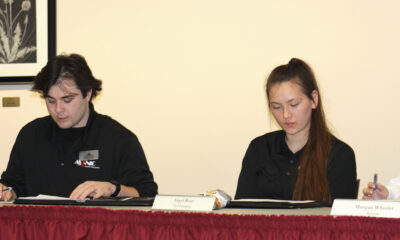Changes to the Rosenberry drive portion of the levee were discussed at the city council board on March 20, including vegetation removal, maintenance, and parking, with the NIC board of trustees in attendance.
Recertification of the levee is due this July, and is a parallel process through the Federal Emergency Management Agency (FEMA) and the Army Corps of Engineers.
Gordon Dobler, Coeur d’Alene City Engineer, gave a synopsis of the progress over the past couple years and said that the project is about 95 percent finished and ready to submit for recertification in the next two to three weeks.
The Army Corps of Engineers inspected the levee in 2011, and designated a thousand trees to be compromising to the levee. That number was reduced to 350 after consultants finished their assessments.
The updated number includes about 100 shrubs, all of which are dead, unhealthy or choking out bigger trees. Most of the larger trees will continue to complement the shoreline.
Though the number of trees and shrubbery has been reduced, the amount of vegetation designated for removal is still difficult for some.
“Growing up as a kid here, it’s what I associate with part of the lake,” Robert Montgomery, an NIC pre-med major, said. “You get the beautiful backdrop of the mountains and then you have the trees. It’s going to be completely change the tone of the campus and part of the city is going to be removed as well. I feel like the trees all add to the beauty that is the city.”
Dobler said it helped to get an ad hoc committee together and on the dike road to get a visual look at the trees that need to be removed.
Parking on the levee was also discussed during the meeting.
There are 127 parking spots currently, and Dobler said the goal is to at least maintain that number but also to brainstorm different options.
Fixing the erosion on the top of the dike road was one of the 125 concerns from the Army Corps of Engineers, and their assessment was that improved beach and NIC access is needed to prevent further erosion. Diagonal parking was also discussed as an option, but is more expensive and would compromise a larger number of trees, while tripling the number of parking spaces.
The recertification process is not only a safety issue, but also a financial one. Complying is vital and affects commercial and residential insurance rates.
NIC has provided 50 percent of funds, which comes out to about $250,000, just to assess what was needed for recertification.



















